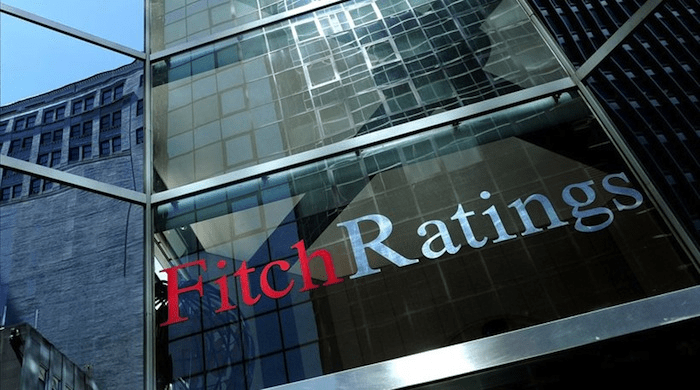
Audio By Carbonatix
Ghana’s effective loss of access to international markets increases risks to its ability to meet medium-term financing needs, Fitch Ratings, has said.
The international ratings agency in its latest report said Ghana has sufficient liquidity to cover near-term debt servicing without market financing, but there is a danger that non-resident investors in the local bond market could sell their holdings, particularly if confidence in fiscal consolidation weakens, placing significant downward pressure on its reserves.
Ghana issued $3 billion in Eurobonds in March 2021, and received $1 billion in International Monetary Fund Special Drawing Rights. The government had indicated plans to issue a further US$1 billion on international markets this year, but abandoned these plans in October 2021, stating current market conditions as reason.
“The widening of Ghana’s spreads reflects growing international investor risk aversion, partly because markets now expect US monetary tightening to come sooner than previously anticipated, making it harder for vulnerable sovereigns to attract external financing”, Fitch Ratings said.
“Concerns about the government’s commitment to fiscal tightening, ahead of the release of the 2022 budget in mid-November, may also have contributed to rising yields. Fitch already projects a more gradual improvement in the public finances than the 2021 budget’s medium-term framework, which saw the deficit falling to 5.5% of GDP by 2023”, it pointed
“We forecast the deficit, on a cash basis, to narrow to 7.7% of GDP in 2023 from 14% in 2020, with the general government debt/GDP ratio continuing to rise through 2022-2023, before plateauing in subsequent years below 90%”, it pointed out.
Medium-term outlook for public finances remains challenging
The international ratings agency said the medium-term outlook for public finances remains challenging, and problems have been exacerbated by the Covid-19 pandemic.
It stressed further that revenue is structurally low and interest costs very high, adding “we project general government interest expense at almost 47% of revenue in 2022, well above the median for ‘B’ rated sovereigns of 11%.”.
Latest Stories
-
Ghana’s global image boosted by our world-acclaimed reset agenda – Mahama
9 minutes -
Full text: Mahama’s New Year message to the nation
10 minutes -
The foundation is laid; now we accelerate and expand in 2026 – Mahama
29 minutes -
There is no NPP, CPP nor NDC Ghana, only one Ghana – Mahama
31 minutes -
Eduwatch praises education financing gains but warns delays, teacher gaps could derail reforms
45 minutes -
Kusaal Wikimedians take local language online in 14-day digital campaign
2 hours -
Stop interfering in each other’s roles – Bole-Bamboi MP appeals to traditional rulers for peace
2 hours -
Playback: President Mahama addressed the nation in New Year message
2 hours -
Industrial and Commercial Workers’ Union call for strong work ethics, economic participation in 2026 new year message
4 hours -
Crossover Joy: Churches in Ghana welcome 2026 with fire and faith
4 hours -
Traffic chaos on Accra–Kumasi Highway leaves hundreds stranded as diversions gridlock
4 hours -
Luv FM Family Party in the Park: Hundreds of families flock to Luv FM family party as more join the queue in excitement
5 hours -
Failure to resolve galamsey menace could send gov’t to opposition – Dr Asah-Asante warns
5 hours -
Leadership Lunch & Learn December edition empowers women leaders with practical insights
5 hours -
12 of the best TV shows to watch this January
5 hours

